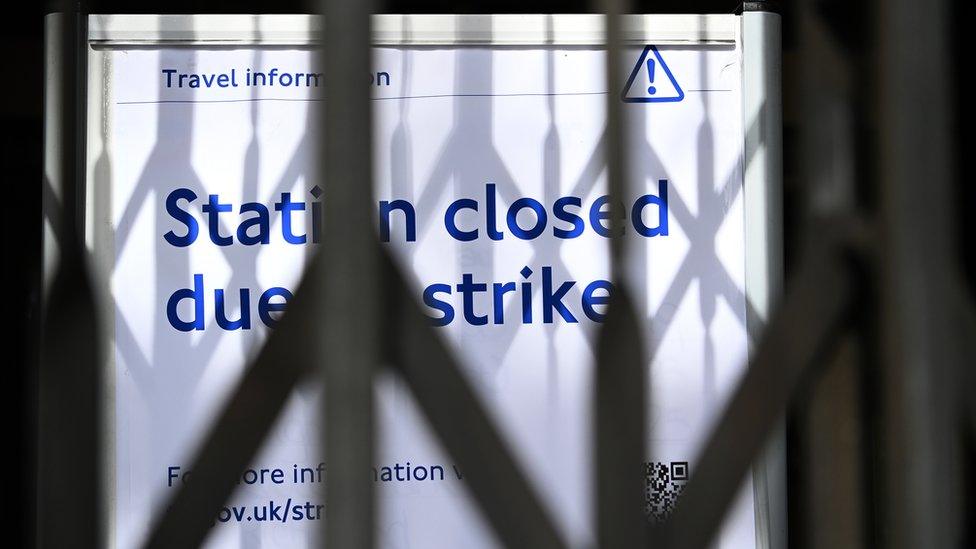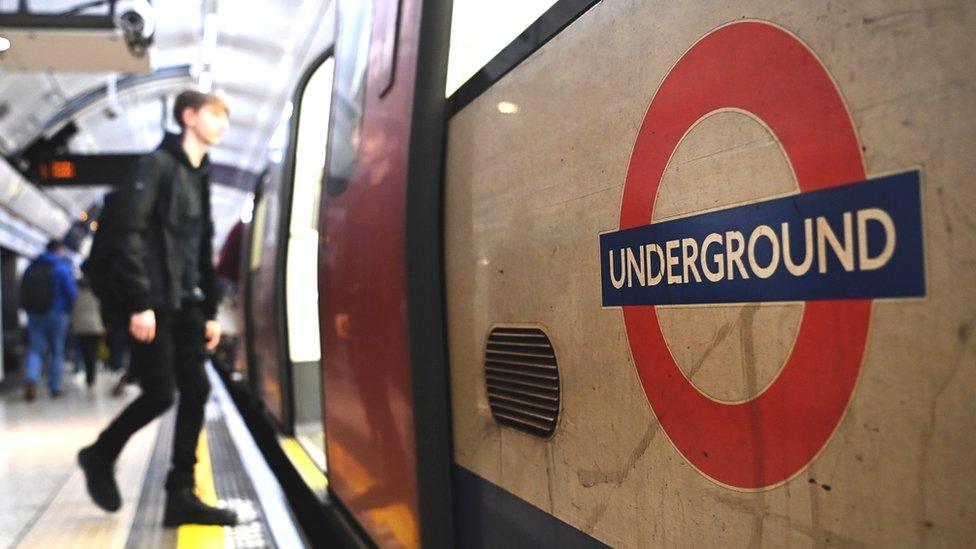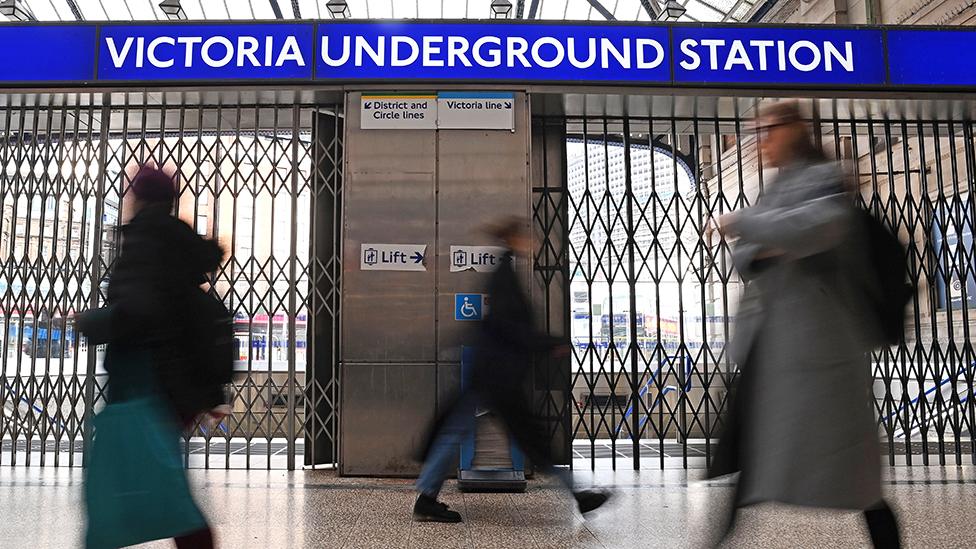Tube strikes 2023: What you need to know about London Underground walkouts in July
- Published

Unions are obliged to give at least 14 days' notice of any strike action
London Underground drivers and staff are set to go on strike as part of a dispute over pensions, jobs and conditions.
Rail, Maritime and Transport Union (RMT) members will walkout from 23 July until 28 July.
And Aslef and Unite union members will strike on 26 and 28 July.
Rail services are also set to be affected by industrial action being held by both Aslef and RMT members.
Glynn Barton, TfL's chief operating officer, said that the company was "continuing to talk with trade unions to discuss the issues and seek a resolution".
When is the next strike?
23 to 28 July - Members of the RMT will walk out
26 and 28 July - Members of the Aslef will go on strike
26 and 28 July - Members of Unite will go on strike
TfL urged passengers to check before they travel as there will be significant disruption on the Tube.
Which lines will be affected?
The RMT said that "different grades and sections of the Tube" would be on strike from Sunday 23 to Friday 28 July, but did not specify which lines would be impacted on which days.
TfL said that on Sunday 23 July London Underground services would finish early, with customers advised to complete their journeys by 19:00 BST.
On Monday 24 July, a good service is expected by late morning, it said.
On Tuesday 25 July and Thursday 27 July, little to no service is expected across the Underground
And on Wednesday 26 and Friday 28 July, no service is expected, including the Night Tube.
TfL said that on Saturday 29 July, Tube services would start later than normal, with a good service expected by noon.
TfL said that Elizabeth line and London Overground services would be busier than normal during the strike, and queuing systems may be in place.
These services, as well as the DLR and trams, are expected to run a full timetable, although the closure of Tube stations might mean some services cannot stop at all stations or run to their usual destinations, TfL said.
TfL added that national rail strikes on 20, 22 and 29 July could also affect some District line, London Overground, Elizabeth line and tram services.
Will some Tube services be operating?
RMT general secretary Mick Lynch said that the week of action would "shut down the London Underground".
On previous strike days Tube lines have been shut down, with commuters turning to buses, bicycles, trams, or working from home.
Transport for London (TfL) said there would be little to no Tube service between Tuesday 25 and Friday 28 July, and there will be no Night Tube service on Friday 28 July.
Passengers are advised to check with Transport for London before travelling, external.
Why have Underground workers been on strike?
By Tom Edwards, BBC London transport correspondent
This is partly about 600 post closures but it's mainly about pensions.
As a condition of the government's bailout of TfL during the pandemic when fare income disappeared, TfL had to make just over £500m in savings.
TfL also had to review its pensions scheme. Some in government thought it was too generous and expensive.
But pensions are a red line to the unions, who do not want them touched. They believe the pension is part of their pre-agreed terms and conditions of employment.
TfL's chief operating officer Mr Barton said: "There are no current proposals to change pension arrangements. Although we are discussing with union colleagues a range of proposals to change how London Underground operates, no employee will lose their job or be asked to work additional hours."
What about the rail strikes?
Drivers at 15 train companies based in England are refusing to work overtime from Monday 17 to Saturday 22 July.
More disruption is planned from from Monday 31 July to Saturday 5 August.
Most rail companies rely on drivers working overtime to run their full schedules, which Aslef says is a consequence of operators not employing enough people.
How much are Tube workers paid?
Full-time drivers earn a salary of almost £64,000 a year, after receiving an 8.4% pay rise in April 2022.
The four-year deal guaranteed 15,000 London Underground staff an annual pay increase of 0.2% above the Retail Price Index, a measure of inflation published by the Office for National Statistics.
Station staff earn considerably less than drivers.
What deal have Tube workers been offered?
By Tom Edwards, BBC London transport correspondent
Unlike many of the strikes at the moment, this isn't a dispute about current pay although arguably it could be described as being about deferred pay — pensions.
One of the options that has been discussed puts the TfL pension in with the local government pension — but that is complicated as it would require new legislation and the government to underwrite it.
Whatever the plan, it is somewhat academic to the unions as the TfL pension is sacrosanct. All the transport unions oppose changes, which they think would make their members worse off in retirement.
Unite regional officer, Simon McCartney said: "TfL are blindly following the government's cuts agenda. The pension scheme is financially viable and in credit, so Unite will not accept any attacks on our members' deferred pay.
"It's time for TfL to realise that we're not backing down. The pension fund must remain unchanged and attacks on jobs must stop."

Follow BBC London on Facebook, external, Twitter , externaland Instagram, external. Send your story ideas to hellobbclondon@bbc.co.uk, external
- Published9 May 2024

- Published10 July 2023

- Published10 July 2023
